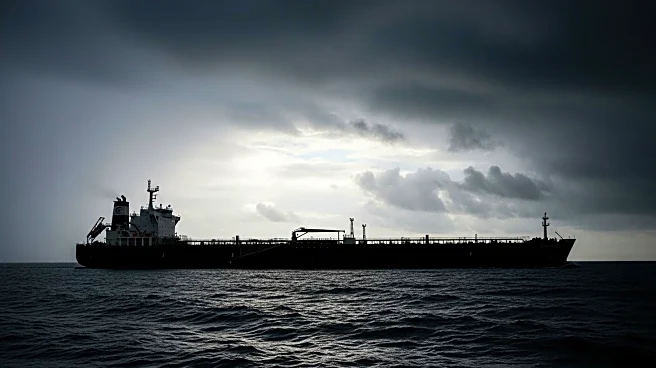What is the story about?
What's Happening?
The captain of an oil tanker, suspected to be part of Russia's 'shadow fleet', is set to face trial in France. The vessel, known as the Boracay, was intercepted by the French navy while transporting crude oil from Russia to India. French President Emmanuel Macron has accused the ship of being part of a fleet that uses various flags to evade Western sanctions. The Boracay is also suspected of being involved in drone activities that disrupted airports in Denmark. The captain, along with the chief mate, was detained, but only the captain will face trial in February for failing to cooperate with authorities. Russian President Vladimir Putin has condemned the seizure as 'piracy' and warned it could lead to increased confrontation.
Why It's Important?
This development highlights the ongoing geopolitical tensions between Russia and Western nations, particularly in the context of sanctions and military activities. The trial could have significant implications for international maritime law and the enforcement of sanctions. France's actions are part of a broader strategy to disrupt Russia's economic activities, which are believed to fund its military efforts. The case also underscores the complexities of international jurisdiction and the challenges in addressing hybrid warfare tactics, such as the use of drones. The outcome of the trial could influence future international responses to similar incidents.
What's Next?
The trial is scheduled for February, and its proceedings will be closely watched by international stakeholders. France may face diplomatic pushback from Russia, which could escalate tensions further. The European Union and NATO allies might consider additional measures to counteract Russia's 'shadow fleet' operations. The trial's outcome could set a precedent for how nations handle similar cases of suspected sanction evasion and hybrid warfare tactics.
Beyond the Headlines
The incident raises questions about the effectiveness of current international maritime laws in dealing with state-sponsored activities that blur the lines between civilian and military operations. It also highlights the need for enhanced international cooperation to address the challenges posed by hybrid warfare. The economic impact on global oil markets and the potential for increased military confrontations in international waters are additional concerns that may arise from this case.
















